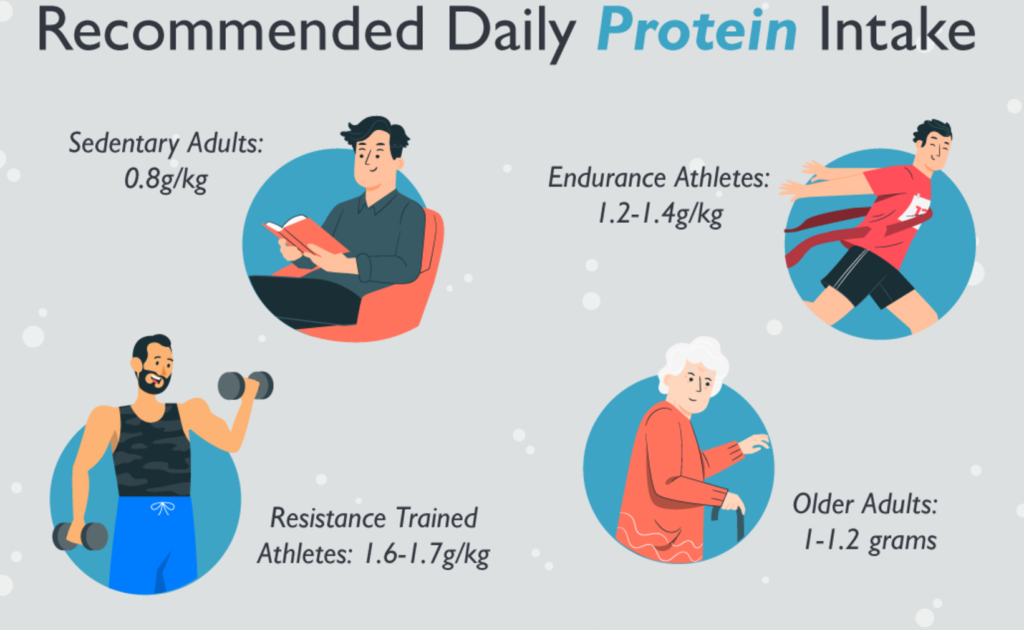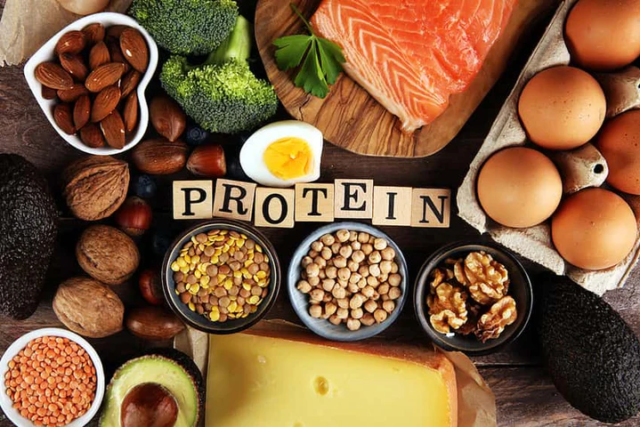Protein is a dietary superstar. It fuels muscle growth, supports metabolism, and repairs tissues, making it essential for our health. But while protein is crucial, can you have too much of a good thing? With high-protein diets and supplements gaining popularity, it’s important to explore the potential risks of overconsuming protein and how to strike the right balance.
Table of Contents
What is Protein Overconsumption?
Defining Protein Overconsumption
Protein overconsumption occurs when you consistently consume more protein than your body needs. While the exact threshold varies based on individual factors like activity level and health status, taking in significantly more protein than recommended could strain your body and lead to health complications.

Why People Consume Excess Protein
The rise of fitness culture and diets like keto and paleo has glorified protein. Many believe that “more protein equals more muscle” or that high-protein diets are a shortcut to weight loss. This has led to widespread overuse of protein shakes, bars, and supplements.
The Recommended Daily Protein Intake

How Much Protein Do You Need?
For most adults, the Recommended Dietary Allowance (RDA) for protein is:
- 0.8 grams per kilogram of body weight for sedentary individuals.
- 1.2–2.0 grams per kilogram for athletes and active individuals.
Pregnant women and older adults may require slightly more protein to meet their specific needs.
High-Protein Diets vs. Excess Protein
High-protein diets, within reasonable limits, can be safe for most people. However, regularly exceeding the upper limit of your protein requirement—especially through supplements—can pose health risks.
Potential Risks of Too Much Protein

Kidney Health Concerns
Excess protein increases nitrogen byproducts like urea, which the kidneys filter out. While healthy kidneys can handle this workload, those with pre-existing kidney conditions may experience further strain, potentially worsening their health.
Bone Health Issues
High protein intake, especially from animal sources, may increase calcium excretion through urine. This could weaken bones over time if not balanced with adequate calcium intake.
Digestive Problems
Consuming large amounts of protein often displaces fiber-rich foods, leading to constipation and bloating. Drinking insufficient water exacerbates these issues, as protein metabolism requires ample hydration.
Weight Gain
Surplus protein isn’t stored as protein—it’s converted to fat. If you overconsume protein while exceeding your calorie needs, weight gain is inevitable.
Heart Health
Diets excessively reliant on red meat and processed animal products can elevate cholesterol levels and increase the risk of heart disease due to high saturated fat content.
Metabolic Imbalance
Excess protein metabolism produces ammonia, which is processed by the liver. While occasional overconsumption isn’t harmful, prolonged excessive protein intake may strain liver function.
Special Considerations for Certain Groups
Athletes and Bodybuilders
While athletes require more protein to repair muscles and fuel performance, exceeding 2.0 grams per kilogram of body weight rarely provides additional benefits and may lead to unnecessary strain on the body.
Individuals with Medical Conditions
People with kidney disease, gout, or diabetes need to monitor protein intake closely, as excess protein can exacerbate these conditions.
Pregnant and Lactating Women
Although their protein needs are elevated, overconsumption during pregnancy can lead to dehydration and nutrient imbalances.
Signs You May Be Consuming Too Much Protein
Physical Symptoms
If you’re eating too much protein, you may notice:
- Digestive discomfort: Constipation or bloating.
- Bad breath: A common side effect of ketosis.
- Fatigue: Caused by metabolic strain from excess protein.
Long-Term Health Warning Signs
Chronic protein overconsumption may lead to signs like persistent dehydration, poor bone health, and kidney discomfort.
Balancing Protein in Your Diet

Getting the Right Amount
Start by calculating your protein needs based on your body weight and activity level. Stick to whole foods for protein instead of relying on supplements unless medically advised.
Healthy Protein Sources
Choose a mix of:
- Animal-based proteins: Chicken, eggs, fish, and dairy.
- Plant-based proteins: Lentils, chickpeas, quinoa, nuts, and seeds.
The Role of Fiber and Hydration
Eating plenty of fruits, vegetables, and whole grains ensures you get enough fiber to prevent digestive issues. Adequate hydration also supports protein metabolism.
Busting Common Myths About Protein Overconsumption
Myth: High Protein Always Means Weight Loss
While protein can support weight management, consuming too much can lead to weight gain if total calorie intake exceeds energy expenditure.
Myth: Excess Protein Builds More Muscle
Muscle growth depends on training intensity, not just protein intake. Beyond a certain point, extra protein offers no additional benefit.
Myth: High Protein Is Bad for Everyone
For most healthy individuals, high-protein diets can be safe when balanced with other nutrients. The risks arise when protein is consumed to excess or without adequate variety.
Conclusion
Protein is vital for health, but overconsumption can backfire, leading to a host of issues from kidney strain to digestive discomfort. The key is moderation—understand your unique protein needs, prioritize whole-food sources, and avoid falling for diet fads that encourage excessive intake. Balance is the secret to a healthy, sustainable diet.
Frequently Asked Questions
What happens if you eat too much protein in one day?
You may experience bloating, dehydration, or digestive discomfort. Long-term overconsumption can strain the kidneys.
Can excess protein harm your kidneys if they’re healthy?
No, healthy kidneys can typically process excess protein, but caution is necessary if you have kidney disease.
What’s the best protein intake for athletes?
Athletes typically need 1.2–2.0 grams per kilogram of body weight, depending on their activity level and goals.
Do plant-based proteins carry the same risks as animal proteins?
Plant-based proteins generally pose fewer risks due to lower saturated fat and better nutrient balance.
How do I know if I’m eating the right amount of protein?
Monitor your energy levels, digestion, and muscle recovery. Consulting a dietitian can help tailor protein intake to your needs.



MOST COMMENTED
Animal-Based Proteins / Casein Protein / Dietary Protein / High-Protein Diets / Pea Protein / Plant-Based Proteins / Protein / Protein Deficiency / Protein Supplements / Proteins / Whey Protein / Whey Proteins
Is Protein Powder Safe for Teenagers and Children?
Animal-Based Proteins / Casein Protein / Dietary Protein / High-Protein Diets / Pea Protein / Plant-Based Proteins / Protein / Protein Deficiency / Protein Supplements / Proteins / Whey Protein / Whey Proteins
Unlock the Power of Proteins for Optimal Gut Health
Multivitamin
Total Health: Multivitamin for Active Lifestyles
Multivitamin
WellnessFusion: Complete Multivitamin Support
Dietary Supplement
Revitalize Your Health: The Magic of Red Yeast Rice Capsules
Foot care / Foot Health
Revitalize Your Foot Care Routine: Essential Tips for Optimal Foot Health
Foot Problem / Diabetics / Foot Health
Diabetics: Mastering Footwear Selection for Enhanced Foot Health and Ultimate Comfort
Exercises and Footwear Tips for Hammertoe Relief / Foot care / Foot Health / Foot Pain / Foot Problem / Hammertoes
Unlock Effective Exercises and Footwear Tips for Hammertoe Relief
Hammertoes / Foot Health / Foot Pain / Foot Problem
Unlock Relief: Essential Guide to Hammertoes Causes, Symptoms, and Treatments
Foot Problem / Foot Health
Revolutionize Your Recovery: Natural Remedies for Plantar Fasciitis – Fresh Home Keepers